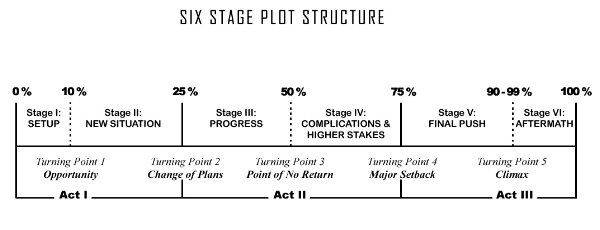Posts from 2011 and earlier
Character and Plot in a Full Magic Show
Part Two: Plot
(Posted 11/19/2011)
In magic we talk about tricks having plots and that seems reasonable to me. Certainly an ace assembly tells a little story of things coming together even without a superimposed narrative -- say the story of a family coming together. We just get it on an intuitive, archetypal level. Of course sometimes a superimposed story can be poetic and amazing -- think of Eugene Burger's "Gypsy Thread" -- but too often the trick and story are yoked together awkwardly and the trick itself is reduced to the level of an illustration in a bad children's book.
So if tricks are little stories is a magic show like a short story collection? And if it is, couldn't the magic show structure of one trick after another develop into something more grand and cohesive, the way medieval collections of stories evolved into collections with framing devices (like The Canterbury Tales), then stories centered on a single hero (picaresque novels like Don Quixote) and then the modern novel? Or maybe tricks are more like songs and a magic show like a concert. Sure, there's some structure to a concert -- start big and finish bigger -- but there's nothing like this:
Part One: Character
(Posted 9/30/2011)
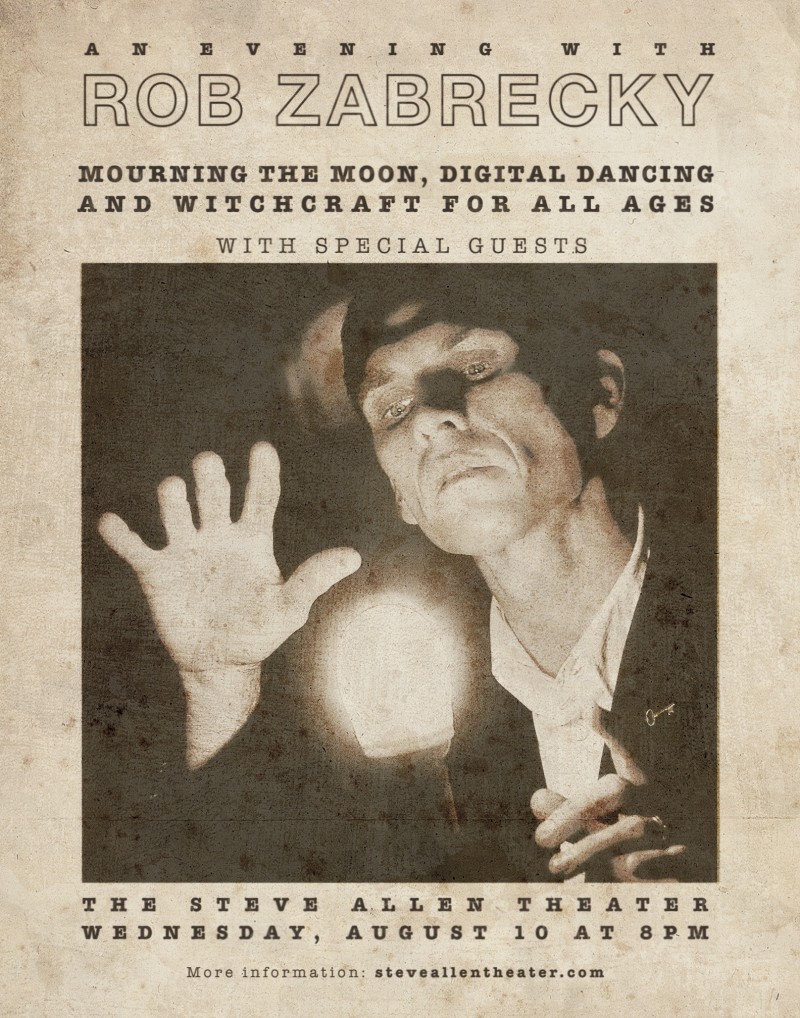
"What is character but the determination of incident? What is incident but the illustration of character?”
– Henry James, The Art of Fiction.
I’m a screenwriter – magic is just a hobby for me – and the central idea of this blog has always been to approach magic from a screenwriter’s perspective. So the long-form magic show – anything over, say, an hour, has long been a special source of fascination for me. Actually, my fascination started long before I became a writer – it was way back when I was a boy and my cool New York aunt took me to see Doug Henning’s The Magic Show on Broadway.
Imagine: a magic show with a story! How cool is that?
But it doesn’t seem to be that common a thing and when it does happen, it’s often, well, not so good. A different set of skills go into writing a long story and a short trick. I’ve seen several magicians faced with the prospect of a huge expanse of time who seem to have stuffed it with whatever they thought of first. They may appreciate the beauty of a lean, clean magic trick, but it’s like it doesn’t occur to them that the same virtues apply to story-telling. As the writers’ saying goes, “Never use two words when one will do”, an aphorism Strunk and White reduced to "Omit needless words" and Mark Twain to “Eschew surplusage.” Twain wins.
But this summer I had the pleasure of seeing two really good long form, narrative-infused magic shows here in L.A.: Guy Hollingworth’s An Expert at the Card Table and Rob Zabrecky’s An Evening with Rob Zabrecky. (Read more...)
Falling Under Magic's Spell
(Posted 7/10/2011)
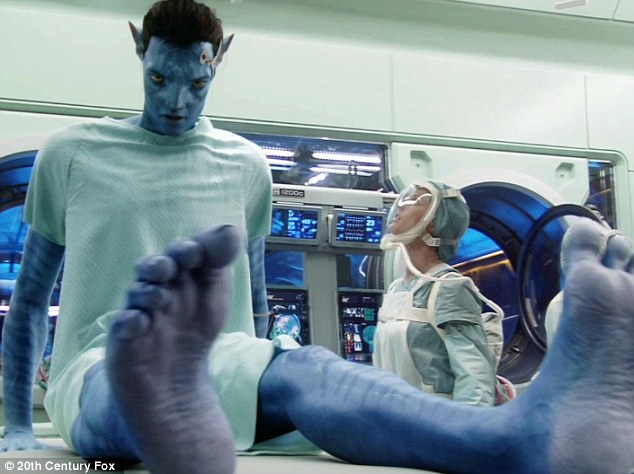
I haven’t been posting much lately – the fact is, I’ve gotten a pretty nice writing assignment with only one hitch: I’ve got to cram a year and a half’s worth of research into four months. Also, it’s TV pitching season here in LA and I’m getting ready to go into the networks with a producer and a co-writer with silver tongues – something I decidedly do not have. Oh yes, dear reader, it looks like I’m reasonably eloquent as you read this, but it’s all a front – ask me to say these same exact words in front of a crowd and I come off like the idiot love child of Forrest Gump and the Hunchback of Notre Dame. Okay, not really, but it feels that way to me.
Still, today I’m playing hooky from my obligations and thought I’d toss off a post just to say hi.
In the course of writing this script, I’ve been thinking
a lot about that moment in a movie that we surrender to the world, and I’ve
been comparing that to our experience of a magic show.
(Read more...)
Up Escalators and Upper Arms
(Posted 5/11/2011)
“Your ancestors called it magic but you call it science. I come from a land where they are one and the same.”
Okay, so I saw Thor this weekend. I had a lot of fun (though not quite as much fun as my wife and daughters had – the sight of a shirtless Chris Hemsworth reduced them to quivering bowls of estrogen jelly).
The movie also reminded me that I’ve been meaning to post on magic and science, but I’ve been having trouble getting started: the topic is too broad – it seems like I’ve got too much to say and too little time to say it. So I thought I’d chip away at it with a bunch of short posts. You know, like a real blogger. (Read more...)
The Breaking String
(Posted 4/7/11)
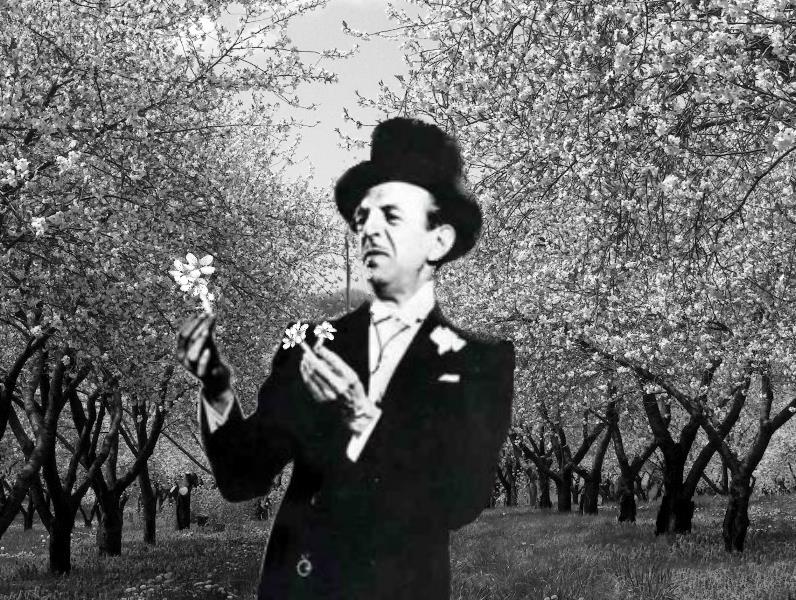
(Cardini in the Cherry Orchard)
It’s funny what you remember. Years ago I saw a production of Chekhov’s The Cherry Orchard and today I could tell you just two things about it: 1) I think it was about a bunch of rich people who get really worked up about some trees and, 2) there’s a great moment where the characters hear a sound and each one has a different interpretation of what caused it. This is how Chekhov wrote it:
Suddenly a distant sound is heard as if from the sky, the sound of a breaking string, which dies away sadly.
LUBOV: What's that?
GAEV: Or perhaps it's some bird . . . like a heron.
TROFIMOV: Or an owl.
LUBOV: (Shudders) It's unpleasant, somehow.
That’s it. A little nothing of a scene, isn’t it? And yet I can’t tell you how many times I’ve thought of that scene since then. It has helped me as a writer dozens and dozens of times because we writers (like magicians) tend to focus on what our characters do – this scene reminds me of one the most revealing and yet neglected aspects of characterization: how a character reacts. (Read more...)
Do People Think Magicians Are Jerks?
(Posted 2/25/2011 on itricks.com and here on 3/3/2011)
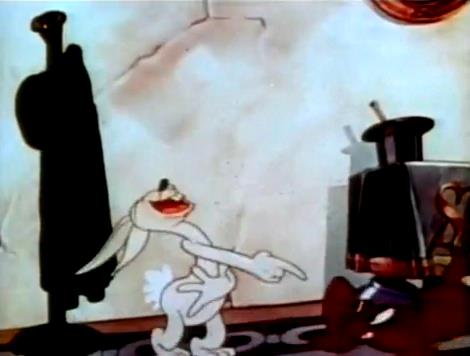
When the MC announces the next act on the program is a magician, I think a good chunk of the audience gets nervous.
Perhaps these people are intimidated by the thought of bearing witness to the awesome power of one who can bend the very forces of nature to his will. Or maybe they’re afraid of having their bra pulled out of their shirt
Ahh, the old old bra trick. I know two women who were traumatized by having that trick done on them (granted, it happened back when bras were actually not supposed to show outside clothing, but still…). I humbly suggest that in this trick it’s not just a bra being exposed, but also the dirty undergarment we magicians usually like to keep hidden…
Sometimes, magician can be jerks. Read more...
Time and Exposure, Part Two
(Posted 2/15/2011)
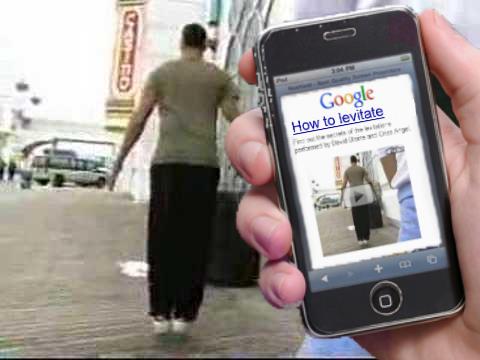
So you thought the worst thing that could happen
during one of your performances was Perez Hilton tweeting “I would rather
be getting a root canal” in the middle of your show.
Okay, maybe that is the worst. But how’s this for a new digital-age nightmare scenario:
You’re performing for a small group at a bar and they’re eating it up – all except for one skinny guy who seems somehow resistant to your charms. So you decide it’s time for a tried and true classic, one with a clear, engaging plot and just a hint of virtuosity. And so you launch into your well-honed Ambitious Card Routine.
You have the card selected, signed and put in the deck. Instantly it rises to the top. There are gasps and laughter from everyone at the table – everyone except that skinny guy. No problem – this trick has a great build and you’ll get him soon enough.
You shove the card into the middle once again as cleanly as you please – instantly, it’s back on top! You look up to acknowledge the applause. And that’s when you see that the skinny guy has taken out his cell phone.
Are you kidding me? He’s making a call in the middle of my performance?
No, actually, he’s not. He’s doing something much,
much worse. Read more...
Sex, Pizza, Self-Esteem and
Magic
(Posted 1/26/2011)
There was a fascinating piece in The New York Times a couple weeks ago called "Choosing Self-Esteem Over Sex or Pizza" that I think has some real implications for how magicians interact with their spectators (article is here).
Given the choice, young bright college students said they’d rather get a boost to their ego — like a compliment or a good grade on a paper — than eat a favorite food or engage in sex, a new paper suggests….
The results of the new paper suggest young people have a compulsion to feel good about themselves that overwhelms and precedes other desires.
“I was shocked,” said the lead researcher, Brad Bushman, professor of communication and psychology at the Ohio State University. “Everybody likes compliments, but more than engaging in your favorite sexual activity? More than receiving a paycheck? I was surprised it was such a powerful thing that it trumped everything else.”
I was trying to form a coherent thesis on the issue when I
suddenly realized, “Wait a second! I’m not some high school humanities
teacher – I’m a blogger! I don’t need a coherent
thesis!”
Read more...
Time and Exposure
(Posted 1/11/2011)
I just came across a lovely interview with magic consultant and photographer, Charles Reynolds in the December issue of Magic magazine. Charles, who passed away last November, was magic consultant on Doug Henning’s TV specials. It’s a very warm and insightful interview – but one passage knocked the wind out of me:
Magic: You connected with Doug Henning by going to photograph him didn’t you?
Reynolds: I had actually met him before that, at an IBM gathering, so I knew him slightly, and by that time I also had a contract with Time Magazine. Then I met Doug a month or so before The Magic Show opened, and when I heard about it from him, I sold Time on the idea that they should do a big color spread on the renaissance of magic, centered on Doug Henning. And, by God, they bought it, and it ran.
We were in Morocco when I got the issue at the little newsstand and I was horrified because they had bought from Walter Gibson – who I loved and was a dear friend – an excerpt from one of his books, explaining the levitation. And I thought, Oh my God, what have I done?
The reason this hit me is that I remember that issue vividly.
About the time Reynolds was at that newsstand in Morocco, I was a boy on a
plane ride from Calgary to Toronto and that Time magazine was in
the seat pocket in front of me. I picked it up, leafed through it and came
across the article on magic – and that was it – I was hooked.
That article was what got me into magic.
Read more...
Fun with N-Grams!
(Posted 12/23/10)
Since nothing says “Happy Holidays!” like graphs, here’s a post about my new favorite time waster, the Google N-gram site.
Google has made their vast database of digitized books available
for searching and now anyone can go and look at the frequency a particular
word or phrase. For example, the other night I entered the words Vampires
and Zombies into their database and it spit out the following graph of the
relative popularity of those words in books published between 1800 and 2000:
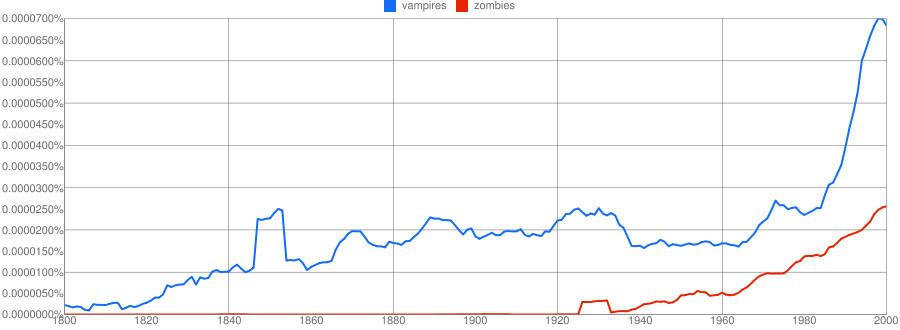
Go, zombies, go!
Pretty cool, right? And so for the first time you really can
compare apples and oranges Read more...
Darwin and Magic
(Posted 12/10/10)
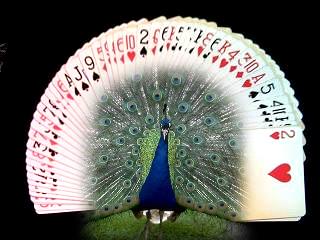
So I was at the beach this summer watching my kids doing the usual beach cavorty things with other kids, when one of the other kids’ moms saw me reading a magic book and said “I used to know a magician – a funny old guy named Charlie who used to come around the house when I was a kid.” Knowing she grew up here in LA I hazarded a guess, almost not daring to hope… “It wasn’t… Charlie Miller, was it?” “Charlie Miller!” she shouted. “Yeah! He taught me how to shuffle. You’ve heard of him?”
Now as anyone who lives in LA knows, sometimes you just cross paths with famous people – I’ve seen supermodels at my local Home Depot and Oscar winners at Hot Topic, and while this is always kind of fun, never has a celebrity sighting given me the thrill of this second-hand brush with one of the greats of card magic.
Charlie Miller!
Wow. Just wow. I felt like shouting, “Listen up, people, one of my daughter’s friend’s moms learned how to shuffle from Charlie Miller! Suck on that as you ponder your greatness-lacking existences!”
I sent said mom this
video just to confirm we were talking about the same funny old guy (and
we were). But a telling thing for me was that she had no idea Charlie Miller
was famous in some circles. Now maybe that’s because she was a kid at
the time and so couldn’t know he was one of the greatest card men in
history – that’s totally understandable. But honestly, I doubt
many people out there apart from magicians know who Charlie Miller is. Or
who Dai Vernon is. Or Ed Marlo.
Read more...
James Bond, Card Man
(Posted 11/25/2010)
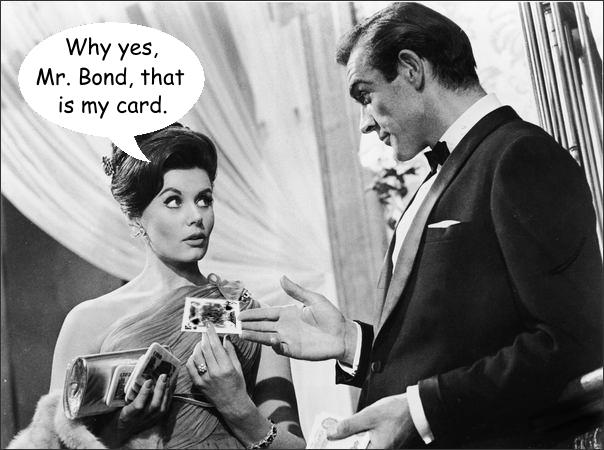
I was hanging out at The Magic Apple on a recent Saturday afternoon watching the card men do their thing (this has become one of my favorite things to do) when I had one of those little moments of insight. My buddy Michael Rangel (a wonderful magician who was nice enough to appear in my Incandescence video) was working out the handling of a routine with another magician when he changed something quite small: the way the deck was cut to the table. Instead of picking the top half, bringing it forward a few inches and putting it down on the table the way someone like me might do it, he pivoted the lower half of the deck out of the way of the upper half and just let the upper half drop to the table. “Economy of motion,” he said.
Honestly, at this moment, I can’t remember what the trick was, but the way Mike cut those cards I remember vividly. I know that a lot of disciplines that center on human movement (like dance and martial arts) strive for economy of motion, but at that moment, the phrase reminded me of something I’d heard some of my acting friends talk about, a technique for movement analysis developed by Rudolf Laban.
Now, my knowledge of Laban’s theories is largely limited to what I’ve gleaned from barroom conversations and Wikipedia, but damn it, this is a blog, and if bloggers limited themselves to what they knew about, well, we’d be writing books.
So here goes: Laban’s system was an attempt to categorize all human movement and his discoveries were applied to acting by Yat Malmgren – Malmgren gave private lessons to Sean Connery for a year just before Connery landed the Bond role. I seem to recall one of my drunken actor friends poking my chest with a chicken wing as he insisted that the Laban-Malmgren technique was a huge influence on Connery’s Bond performance. Read more...
Competition and Wonder
(Posted 10/19/2010)
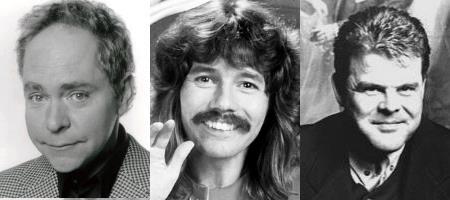
(Photos, left to right, of Teller, Doug Henning, and John Carney)
There are two great quotes by Teller up on my Quotation Gallery page – reproduced here so you don’t have to click over to them:
"The magic show is a competition. The audience is trying to figure you out. They aren't suspending their disbelief—they're trying to expose you as a scam artist."
– Teller (Wired)“In high school I was a serious theater kid and I had a drama coach who was also a magician. We spent endless hours discussing why magic is one of coolest and most sophisticated forms of entertainment. It intrinsically contains the kind of complex experience that Shakespeare breaks his back to write. When you’re sitting at “Hamlet” and the players are playing a play that is supposed to catch the conscience of the king in “Hamlet,” you as an audience member are going, “How is this catching my conscience?” It makes you think about yourself — and magic makes you think about yourself every moment you’re in the theater because you’re asking yourself, “Where does reality leave off and make-believe begin? This guy is screwing with me, this guy is messing with my brain.” It is a fantastically interesting art form.”
– Teller
Now my Internal Pedant wants to analyze these two statements. First, I’d like nice neat definitions of the terms “suspension of disbelief” and “narrative” and the differences in the way playwrights, screenwriters and magicians use the terms. I’d like to explore the historical tradition for the “complex experience” Teller is speaking of, from Shakespeare through Brecht and Godard right up to Christopher Nolen (obligatory film references!). I’d want to smooth out the contradictions in Teller’s two statements and separate specific instances in which they are right and those in which they aren’t. Finally I’d like to muse aloud as to whether the tensions between observation and reality are a failure in Teller’s observations or in the average magician’s inability to live up to The Tellerian Ideal.
But damn if that wouldn’t be boring as hell!
So instead, I’m going to talk about a magic trick I saw once. Read more...
First Post
(Posted 10/11/10)
So, I’m in the middle of writing a screenplay. It’s an action adventure story: the lead characters have just gone through a huge ordeal and then they see something on the horizon that promises to be their salvation. They begin heading toward it…
And then the weekend came. I put aside the screenplay and did the usual weekend things: shuttling kids to softball practice and softball games, shopping for a friend’s birthday party, going to the party, working on a pitch for a producer who called me Friday afternoon all pumped up with a sure-fire concept that some big money company is looking for, and if I can only spin this (frankly, quite thin) idea into a story, then we’ll all be rich, rich, rich! And then topped off the weekend by doing some filming in Venice Beach for the trailers for a couple tricks I’ll be launching soon, ‘cuz, you know, I just got tired of only doing the tricks for my kids, so I did them for a few magician friends and they said, “Those are really cool – you should put those on the market…”
So now it’s Monday and I’ve got to get back to that script. I promised it to my manager “no later than the beginning of September.” So now it’s October. Almost the middle of October. I’ve really got to get writing.
Except that I should also put those free magic tricks up on the website. My wife Bree designed the site herself and she put up a button that says “Free Magic” and if you click it nothing happens, which kind of sucks for anyone who happens to visit the site (which, right now, is probably about six people. Hi, Dad!)
So I fixed that and Bree put the free magic tricks up on the site. She even laughed at my jokes, which was nice.
So now I’m ready to get back to writing that script. Totally ready. Decks cleared. Ready to go.
What better time could there be to start writing a blog?
Read more...
©Chris Philpott 2010-2018. All rights reserved. Original designs and
content by Kathleen Breedyk and Chris Philpott.
Contact Us .
